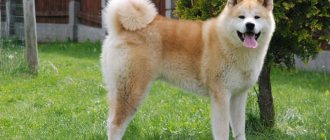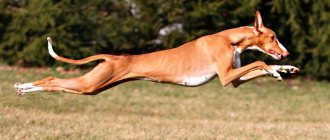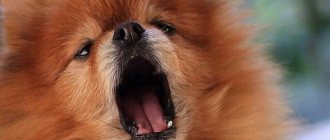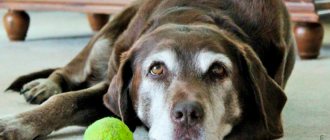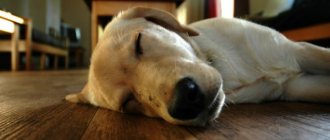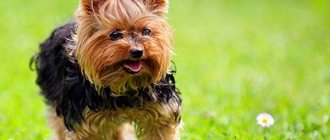The day when a dog appears in the house will, without exaggeration, become a significant day in the family. It happens that, growing up and turning into a not so cute clumsy puppy, an adult becomes a burden for the owners. Sometimes an adult animal is given to another family; cruel owners are able to drive the animal out onto the street. In most cases, the reason is simple: when planning to get a dog, the future owner did not think at all about choosing a breed, taking into account his own lifestyle and capabilities. When purchasing an animal, try to carefully analyze your financial capabilities, level of employment, conditions that you can provide for the puppy and start choosing.
Buying a dog
If you are interested in how to choose a dog breed, analyze your chart and answer a series of questions that will make it easier for you to choose a breed. Having an animal in the house requires:
- Additional finances. Assess your own financial situation. Will there be enough finances to provide a normal life and adequate nutrition for a newly-made family member?
- Time devoted to a dog of any breed. Requires free time for daily care. The dog requires attentive and careful care, otherwise the pet’s health will begin to deteriorate and its appearance will change for the worse.
- Each puppy certainly brings “joy” to the owners in the form of chewed shoes, piles on the carpet, torn wallpaper and “updated” furniture. It is necessary to evaluate your strength and nerve cells in the ability to perceive spoiled things in the first months of the baby’s life.
- Answer yourself for what purpose the dog is purchased. Do you need a companion, a security guard for your home, or are you planning to become a professional breeder and earn money? There may be no need to purchase an expensive purebred dog if you simply want a companion and friend.
- Sometimes the appearance of a four-legged friend requires the owner to change their daily routine. Will a person be satisfied with such a decision? For 10-15 years, the dog needs to be walked daily, and the walks are supposed to be long. You will have to conduct classes with your pet every day and devote a lot of time and attention to games and education.
- When choosing a dog for your soul, take into account the composition of the family, find out about the presence of allergy sufferers among family members.
- Living conditions (apartment or country house with a plot). Does your living space allow you to have a large breed dog or is it better to limit yourself to a decorative dog? It is hardly appropriate to keep a Labrador or a German Shepherd in a one-room Khrushchev house.
- It is important to consider in advance the possibilities of leaving the dog in another home in case of a necessary departure.
When selecting a breed, answer the questions above honestly and keep in mind that the dog is supposed to have only one owner. Otherwise, the animal will not receive the required education, because it will not understand who to obey. An ill-mannered adult is a headache for owners. When getting a dog, be prepared to accept responsibilities in raising your pet. When preparing a gift, ask the person if he is ready to give half of his time to the little fool.
If a person is confident in his desire and has correctly assessed his own capabilities, an immediate purchase is undesirable. From this moment, a new stage of thinking begins, which dog to choose, decide on goals, size and breed. When choosing a dog, it is important to think through the nuances, including the wishes of family members. Remember, disagreements when choosing a breed or other aspects must be resolved amicably, otherwise the appearance of a long-awaited dog for some family members will negatively affect others. The choice of breed is certainly carried out jointly.
Choosing a dog breed for the family
photo taken from Wildfrontier.ru
Very often, novice breeders turn to Internet resources with the request: “Help me choose a dog!” The answers are determined depending on the conditions in which the owner lives, as well as where the animal will live. You can choose a medium-sized breed that can adapt to any aspect of your family's life.
Apartment
If you are looking for a dog for your apartment, you should choose among breeds that will not cause much inconvenience to you, your family and neighbors. These include:
- Yorkshire Terrier . Friendly, inquisitive and smart. He treats every member of the household with trepidation, but recognizes only one owner. Don't leave him alone for a long time - he will be sad. Terriers require constant attention. They are willing to train and have an easy-going and calm character. They get along easily with other pets and children. However, they are real bullies - during a walk he will be the first to bark at everyone.
- Chihuahua . Able to adapt to your life rhythm. They are energetic and quick to react. They are very bold, which seems completely uncharacteristic for their size. They sense human mood well. They are able to relieve physical and moral stress by lying on a sore spot. They are extremely attentive to their owners, become very attached and are one of the most loyal breeds. They are strongly affected by weather conditions - Chihuahuas do not have particularly strong immunity, they can easily get sick. Cold weather and heat have an equally bad effect on their well-being, so owners often use special clothing.
- Pug . This breed is suitable for beginner dog owners. She quickly gets used to her owner's lifestyle and easily adapts to house rules. Pugs will easily find a common language with your child. To maintain your pet's health, you need to walk it for about an hour, as they are inactive. They respond well to training, and the main motivation is treats. However, a pug will make a poor guard; guard skills in this breed are not developed.
- French Bulldog . They have a sharp mind and a perky temperament. They treat all family members with respect, without singling out the owner. They get along well with children and protect them while adults are not around. French bulldogs are easy to train, and their guard qualities are quite well developed. The minimal complexity of keeping allows an inexperienced dog breeder to own this breed. He will feel your mood very subtly: you can count on his support not only in moments of joy, but also in moments of sadness. He will quietly settle down at your feet and express his help with all his appearance. Pay special attention to walks; they should take at least half an hour a day.
Living in an apartment does not oblige you to purchase a small breed. You can easily afford a Rottweiler, Airedale Terrier, or Doberman.
Owner's character
Evaluate yourself as a person.
Active athletes and quiet housewives need different dog breeds. There are a number of breeds known that only strong and strong-willed people can handle. Popular decorative breeds will require a lot of time and attention, and are capable of causing scenes of jealousy if someone decides to get closer to their beloved owner or mistress. If a person has a high degree of activity and is considered a follower of an active healthy lifestyle - he loves cycling, jogging, rollerblading, an active, agile and nimble representative of the dog breed will be suitable. For example, Irish Setter, Husky, Greyhound Italian Greyhound.
Let the calm and balanced future owner take a closer look at retrievers or pugs. Business active people with a strong-willed character can purchase a German Shepherd, Doberman or Rottweiler.
If you are thinking about purchasing a decorative breed, remember that indoor pets require significant attention. Capable of being stubborn, extremely nervous and sensitive.
Most dog trainers and breeders recommend adopting a small puppy. Obvious difficulties with raising and raising are foreseen, but there is firm confidence in the upbringing and disposition of the pet. Some people prefer to adopt an adult dog to avoid the hassles of growing up, hassling with vaccinations, and childhood diseases.
Adult or puppy: which dog to choose
It is always better to buy a puppy, especially if this is your first dog. Growing up, the puppy adapts specifically to your character and temperament. Provided that you purchased a puppy from a reputable breeder, you receive:
• the ability to independently raise and train a pet “to suit you”; • a lot of positive moments from the joys of “puppyhood”; • the boundless devotion and gullibility of the little friend due to the fact that he has never encountered human cruelty.
Of course, there is also a downside: in the first year of life, the baby will dirty the house, try furniture and walls to its teeth. Puppies also need increased attention in terms of care and health: routine vaccinations, 5-6 feedings a day, some breeds – ear and tail docking, etc.
The advantage of purchasing an adult dog is that, provided it is properly raised, it will no longer make a puddle in the apartment, and perhaps it will even know some commands. However, it will be more difficult for you to approach her and gain her trust. An adult dog has already been raised by someone, become attached to someone, and been disappointed in someone. Of course, if you are deeply touched by her unhappy eyes, and you feel that you can give her what she did not receive in life or lost due to circumstances, do not make her suffer - bring a friend to the house. The dog will respond to the love and very soon it will seem like you have known each other your whole life.
How to choose a dog you like: determine the purpose of the purchase
The next important step for a person who wants to get a dog is to decide what it is for: will it be, first of all, a watchman for the house and a protector of the family, or a funny fluffy sloth, snoring on the sofa and cuddling with all the guests? The best dog breed for you to choose depends on what you expect from communicating with your dog. Maybe you need an active hunting dog or a companion for a disabled person. When choosing a service breed dog, remember that it will need constant training on the site and daily stress, in other words, “work”. A service, fighting or guard dog will not always be a good companion, especially if there are children in the house. And vice versa - a dog that loves children, copes well with the responsibilities of a nanny and caregiver, often manifests itself as a bad watchman and a useless protector.
It is also important to understand that the answer to the question - how and what breed of dog to choose - largely depends not only on preferences, but also on your living conditions and daily routine. For example, no matter how much you love sled dogs like the Alaskan Malamute and Siberian Husky, which have become fashionable in recent years, keeping these breeds in a city apartment is not always convenient and is best owned either by the owner of a cottage with a large territory, or by a highly energetic person who is ready to walk every day pet for several hours. You should also be more careful when choosing dogs from popular service breeds: for example, a German shepherd is created for “work,” be it guarding, searching, or just daily training, and ordinary walks and games with family members will not be enough for her. It is not advisable for teenagers and elderly people, as well as for those who have no experience in keeping dogs, to have dogs of the so-called “fighting breeds”.
Read more about the specifics of “fighting breeds” in the article: “Fighting dogs”
Distinctive features of different breeds
By purchasing a dog, a person acquires a new family member. When choosing, the vast majority of people first of all pay attention to the appearance of a potential four-legged friend. However, few people take into account the fact that dogs have different characters and behavior patterns. Let's take a closer look at the signs that are important when choosing a purebred friend. Here are a dozen smart and intelligent dog breeds:
- Collie.
- Poodle.
- German Shepherd.
- Rottweiler.
- Doberman.
- Labrador, golden retriever.
- Schnauzers.
- Spaniel.
- Belgian Shepherd.
- English cocker spaniel.
Think about your preference - male or female.
There are advantages and disadvantages in both cases. During the spring spree, the behavior of the bitch changes noticeably, the males behave a little calmer. Think about whether fussing with your offspring is included in your plans. Males in this regard are less problematic, but are more often self-sufficient and independent. Any dog requires coat care. Select breeds require constant brushing and grooming. If you plan to keep a pet in an apartment, be prepared to constantly remove hair from the carpets. Consider the possibility of allergic reactions to dog hair in family members. Poodles are considered low-allergenic to humans.
Gender of the dog
This is an important nuance; males and females require different care. Both genders exhibit positive and negative traits.
Bitches
According to dog experts, female dogs are often emotionally unprotected and become much closer to humans than individuals of the opposite sex. It is believed that girls perceive educational procedures more easily, are flexible, and, with the appropriate documents, are used for breeding puppies. The female is attracted to male dogs no more than 2 times a year, and the presence of admission opens up the possibility of breeding for the owners.
Added to the obvious disadvantages of keeping female dogs are the danger of unplanned pregnancy and estrus. Difficulties with false pregnancy and complications associated with this are often noted. If you do not plan to breed puppies, you should think about sterilization. There is no need to talk further about care and increased attention during pregnancy.
Males
Males are emotionally more assertive, energetic, characterized by recklessness and uncontrollable joy. We are happy to give our owners positive emotions every day, without giving them peace. Among the positive qualities of a male dog are increased activity and the absence of difficulties associated with pregnancy. There are no restrictions regarding participation in competitions and exhibitions, which is explained by the highest degree of compliance with breed standards.
Disadvantages include increased interest in the opposite sex, all year round. The desire to dominate and take a leading position is expressed. The education of a male dog, mainly of a service breed, should be given increased attention. With the right and clear approach, they can show stunning results as a result of training.
Dog age
Without being an experienced breeder, never get an adult. The best dog for an amateur will be a small puppy raised by himself. Try to instill in the dog the correct behavior, smooth out the rough edges in its character, and adapt it to the conditions of being in the family.
It is problematic to do everything described with an adult dog. The adult has developed a permanent character and is accustomed to certain conditions of detention. It is difficult, sometimes impossible, to remake an adult individual for yourself.
The only plus. An adult animal (with good upbringing, of course) will not allow itself to make a puddle in the middle of the corridor, chew shoes and damage furniture. This is an already trained adult dog, with instilled norms of behavior.
Choosing a dog for an apartment
People get dogs to have a best friend and helper in psychological matters. It’s not boring to play sports with a dog, it’s fun to go fishing or hunting. But when getting a pet, it’s rare that a person will think about the comfort of a dog’s stay in a city apartment.
Having a large breed of dog as a pet in an urban apartment is unsafe and difficult. The dog will need to be walked, and in places where there are no people or other animals. Agree that there are catastrophically few such places in cities. Secondly, a large dog needs a large space, with its own place and personal territory. This is difficult in apartments with a total area of 40 square meters, where, in addition to the dog, there is also a human family. Medium and small breeds of dogs are mainly suitable for keeping in city apartments.
The nuances of keeping dogs in an apartment
- Walk. An adult dog needs to be walked 2-3 times a day, and one walk is supposed to be long. In urban conditions, it is not recommended to let the animal out into the street without the supervision of the owner (as is practiced in villages and villages); this poses a danger to the dog and surrounding people.
- Vaccinations. If you want to have a healthy dog and minimize the risk of contracting infectious diseases in your family, you will have to get regular vaccinations. A domestic dog is often shown to a veterinarian; the animal is more susceptible to diseases and ailments.
- Training. You should not neglect the education and training of city dogs. This is much more important than training a wolfhound sitting on a chain in the village.
- Safety. People who keep large service dogs in their apartments have a responsibility to ensure the safety of those around them. An untrained and uncontrolled animal poses a great threat to the life and health of neighbors.
Medium breeds
There are many medium-sized dog breeds for apartments. Let's look at the popular representatives of the subgroup.
- Poodle. A beautiful, smart and cheerful animal will become a beloved family member. It is recommended to purchase this breed of dog for families with children. Often, older single people choose a dog breed because of its kindness, sincerity and balance. The only difficulty in keeping it is regular coat care. The poodle needs to be combed daily and, if necessary, cut.
- English cocker spaniel. Since ancient times, the dog was intended for hunting, but today it is common in apartments. This is a kind dog breed that gets along well with children and other pets. Does not require special efforts in education and training. Unpretentious and smart. Before buying a breed, keep in mind that the English Cocker Spaniel needs long walks, and the dog is also given time to run around as much as possible.
- Boxer. An intelligent and willful dog will bring a lot of joy and happy moments in the life of a family. The dog breed demands respect. There are no shortcomings of the breed, except for the fact: when raising a puppy, you will need to constantly support the owner's leadership.
Small breeds
Small breeds of apartment dogs serve as both friends and protectors.
- Pug. Funny dogs willingly become family members. They are able to support the child in the game, help mom concentrate in the kitchen and enjoy watching football on TV with dad. It is unlikely that you will find a more sociable dog. Pugs are reluctant to train, but they are able to understand a person at first sight, provided there is complete mutual understanding.
- Scotch Terrier. In ancient times, it was a hunting breed of dog, but thanks to its excellent watchdog qualities, the dog became a domestic dog. The Scottish Terrier is a wayward dog, distrustful of others and rarely accepts more than one owner.
Small dog breeds for apartments
Small breeds of dogs for apartments are becoming very popular today. Dogs are often bought as an addition to the graceful appearance of the owner or owner.
- Pekingese. It is considered the best representative of small dog breeds intended for living in an apartment. The Pekingese is unpretentious in food, unobtrusive, uncapricious and always adapts to its owner. To keep your dog looking its best, it is important to keep its coat clean and smooth.
- Toy Terrier. The most popular small domestic dogs today. The babies have a capricious character, are unfriendly to strangers and are often susceptible to diseases. If you decide to purchase a toy terrier, you should be prepared to give the dog exceptional attention and care.
Smooth-haired and long-haired dogs
Undoubtedly, smooth-haired dog breeds are more suitable for apartments than long-haired ones. They do not require a picky attitude towards their fur, do not shed and do not bring back attached burrs from a walk. But smooth-haired dogs also need coat care. Dogs are supposed to be brushed with special brushes.
Calm dog breeds are recommended more often than mischievous ones for keeping in an apartment. Quiet representatives of dog breeds are considered: collies, Labradors, and retrievers.
Which dog is right for you
photo taken from the site Bagiraclub.ru
Dogs are in no way inferior to humans when it comes to temperament. It is very important to choose a breed that suits your personality. Not every owner is able to cope with a strong-willed and naturally strong animal. Also, not everyone can afford to be near him every hour, as is required by decorative breeds.
If you are active, like to ride a bike, run in the morning, play sports, or can’t sit still, you need a four-legged friend like you. Your active lifestyle will be supported by such breeds as huskies, shepherds, setters, Jack Russell terriers, Rottweilers, and Dalmatians.
If you are a homebody and do not strive for constant movement, and are passionate about evenings by the fireplace and reading books, a Spitz, a bulldog, a poodle, a spaniel, and a chihuahua will make good company for you.
Does the child take the initiative to get a dog? Breeds that get along with children are perfect: beagles, dachshunds, great Danes, St. Bernards, huskies. They love children and will become true friends and protectors for your child; you will not need to worry about their safety.
The owner and his pet must match in temperament and lifestyle, without interfering with each other to be themselves.
Defining goals
To choose the right dog breed, you should decide on the goals of getting the animal. Do you want to see the dog as an excellent watchman and security guard, or a magnificent and faithful companion, or just a small, affectionate four-legged friend.
Analyze whether desires correspond to possibilities. If you want to get a representative destined to become an ideal guard, think about whether you have time to train your pet.
When choosing a small dog for your soul, keep in mind that selected decorative breeds are physically unable to tolerate loneliness. From constant loneliness, dogs get sick and their character deteriorates.
If you have never owned a dog before, you should not get representatives of aggressive breeds that require constant strictness. Dogs often begin to challenge their owner's right to leadership in the family.
Guard dog
Progress does not stand still. Despite the use of high technology, people, as before, strive to have a dog capable of guarding the territory. Statistics show that most intruders are much more influenced by the presence of a formidable guard in the form of a dog than by a security alarm and CCTV cameras.
For hundreds of years, leading positions in the field of protection have been occupied by shepherds and fighting dogs, for example, boxers, mastiffs, and Rottweilers. Do not think that only the listed breeds are suitable as guards. For apartment living, it is better to choose a less dangerous and calmer variety of guard dogs. For example, a bulldog or sharpei becomes full-fledged apartment security guards and wonderful companions.
When choosing a dog to guard your home, consider the needs and size of the animal. Guard dogs are designed to constantly exercise and move. Dogs are given space. These dogs are not kept on a chain. An aviary would be an ideal place. Pets will require a lot of owner's time. You will have to provide:
- Daily long walks, preferably without a leash.
- Daily workouts.
- Strict daily routine regarding feeding.
Watchdogs are required to undergo socialization, and at an early stage of life, otherwise people and animals in the area will have a hard time. Choosing a dog to guard your home does not just mean purchasing one. Without special attention, such dogs will instantly turn into uncontrollable monsters. Consider the fact that a guard dog will not survive without a lot of free space.
Owning a representative of a guard breed in an apartment environment will require the owner to take constant and long walks. Moreover, a spacious area, fenced or remote from people, is selected as a walking area. A guard dog is supposed to be let off the leash so that it can run around and burn off its energy. Private territory will allow you to avoid these difficulties.
Purpose of acquisition
photo taken from Spyderonlines.ru
The choice of dog breed depends on the purpose that you define for yourself when buying it. Free time and living conditions are the main factors you should consider when choosing a pet. Some are in dire need of constant walking, others cannot stand loneliness, and others require special control. Focus on this.
Let's divide animals into main types regarding the purpose of their acquisition and give each characteristic:
- Companion . Their main task is to be close to their owner. They are usually started by elderly, lonely people, as well as disabled people who need a faithful friend and helper. You will not feel abandoned and unwanted next to this amazing animal. They make excellent listeners and comrades you can rely on. The most famous breeds in this area are considered to be Labradors, Retrievers, Spitz, Collies, and Shelties. They are distinguished by ease of care and maintenance, unpretentiousness in food, physical endurance and obedience.
- Security guard . If you need a reliable watchdog, when choosing a breed you need to take into account the needs and size of the pet. You have to devote maximum of your time to them, because without proper attention, the animal can turn into a real problem for the whole family. You will have to provide him with everything he needs: from long walks to a strict daily routine. They need to be raised from an early age, paying special attention to training. With proper training, the puppy will grow into an excellent guard, on whom the owner can always rely. The following breeds are suitable for these purposes: shepherds, Dobermans, Rottweilers, boxers, pit bull terriers, bullmastiffs. These animals have the most developed endurance, physical fitness, and guard instinct.
- Hunter . These pets are perfect for large families with children. They have no desire for dominance; they try to please their owner. If you need a hunting assistant, remember that he will need high physical activity. The animal requires constant movement, so play games with it or go for a run. The hunting breeds include greyhounds, hounds, huskies, spaniels, retrievers, and terriers. They have an excellent sense of smell, run fast, get along easily with all family members, are friends with other animals, and are trainable.
- Homebody . If you want to brighten up your gray everyday life with the appearance of a furry companion, decorative breeds are suitable for you. Terriers, Chihuahuas, Miniature Pinscher, Poodle, Spaniel, Pekingese, Shih Tzu, Pug - suitable for living in an apartment, they are small in size, affectionate and get along well with people. They need constant attention and cannot stand loneliness. Their upbringing should be done on an equal basis with other breeds and introduced to correct behavior from a young age.
It is important
Remember that regardless of your purpose for purchasing a pet, it should not be chained. If he lives on the street, build an enclosure. This is an important aspect for large breeds that need to be constantly moving. They are freedom-loving and will be unhappy when tied up.
Hunting dog
Choosing a dog for hunting means choosing an excellent companion and family member. These dogs include Labradors and retrievers, huskies and Dalmatians, spaniels and terriers, basset hounds and other wonderful breeds. The animals are ideal for large families with small children.
Breeds do not strive to dominate; they tend to please their owners. Representatives of the breed need constant movement. Energetic games with family members in the fresh air are ideal.
It is acceptable to keep in a house or apartment. But living in an apartment requires daily long walks. Hunting has accustomed representatives of hunting species to constant movement. Animals are often hyperactive.
How to choose a dog for an apartment
Everyone decides for themselves what breed of dog to choose for their apartment, but there are several general rules. It is worth paying attention to:
- room size. Even the calmest big dog will be cramped in the studio, but a small and perky dog will find it a huge area;
- Lifestyle. Like people, some dogs are homebodies, while others cannot imagine life without active walks and regular exercise. The future owner should think about whether he wants to spend several hours a day walking, or whether he only has 15-20 minutes;
- the amount of time the owner is willing to devote to the animal. Even an unpretentious breed of dog for an apartment needs human attention.
- the presence or absence of children, their age. Tiny or skittish dogs are not suitable for families with small children;
- allergies in household members or a tendency to react;
- cleanliness of the dog;
- tendency to bark;
- relationships with other animals.
It is also necessary to take into account the costs of maintenance: the pet needs to be provided with high-quality food, buy toys and equipment, regularly show it to the veterinarian, and get vaccinations - these are rather large expenses.
The best dog breed for an apartment is one that the future owner can see nearby. When choosing, he must look at how well the dog’s characteristics fit the conditions, and his preferences in appearance, character and content must also be taken into account.
Decorative dogs
Among others, decorative dogs have become very widespread today, which young ladies love to carry in their arms, do unusual cute hairstyles and dress in incredible costumes. It is often believed that such dogs are of very little use, but with proper upbringing and strict training, animals are able to compete with large dogs.
Decorative breeds are ideal for keeping in apartments. Representatives of indoor dogs are small in size. They are affectionate and get along well with their owners. Take a closer look at the lapdog breed: beautiful, affectionate, smart.
Decorative breeds need training; behavioral skills will need to be instilled. The disadvantage of small dogs of decorative breeds: they are often unable to endure prolonged loneliness and require the constant presence of a living soul in the house.
Poodle
The poodle rightfully occupies one of the leading places in the ranking of the smartest dogs.
Fetching a stick, walking on their hind legs, jumping over obstacles, performing in the circus - all this is about the innate artistic talent and boundless intelligence of poodles. Only poodles learn with incredible speed and are easier to train than all other breeds.
Absolutely non-shedding dog! Despite its long coat, it is suitable for people with allergies to dogs. You can groom poodles like an ordinary dog, so if you are not a connoisseur of the aesthetics of dog haircuts and are not going to take all the titles in the world, don’t be alarmed, all you need is a portable machine and half an hour of free time every 2-3 months. In addition, it is the hair of poodles that is the very component of warming dog belts!
Of course, poodles have disadvantages, and one of the main ones is that this breed is not for small children.
Poodles are often hypersensitive, so loud noises, screams, disorder and chaos can affect the dog’s psyche and behavior.
Poodles are distrustful of strangers, while being excellent guards of their territory, and greet guests extremely emotionally. So, if you don’t want to hear your dog barking frequently, then the poodle is not the breed for you.
Suitable for: apartment living, allergy sufferers. Doesn't need long walks.
3
How to determine the breed of a dog
To determine the breed of dogs, special identifiers have been developed. Pedigree dogs are described in detail in special standards by which selection is made at exhibitions and for breeding.
Algorithm for determining breed by external characteristics:
- Determine the dimensions of the dog - measure the height at the withers, determine the body format using a tape measure.
- Take a closer look at the shape of your pet's head and muzzle. Determine the format of the body: the ratio of the length of the body and the height of the dog.
- Important characteristics are the shape and fit of the ears, the shape and position of the animal's tail, the color and character of the coat.
- Find a good reference book for the definition. Use printed publications and information from the Internet; it is better to combine information: a single source will not provide comprehensive data.
- If you find a similar photo, carefully study the description of the standards. Difficulties arise with mestizos, with detecting signs of several bloods at the same time.
- To guarantee, check with your veterinarian or kennel club. In large cities, specialized veterinary clinics have been established where it is possible to order a genetic examination of a pet. A reliable way is to purchase a puppy with documents from a professional breeder with a decent reputation.
Where to buy a purebred puppy
You should choose a purebred puppy in special professional nurseries where they breed the breed. Find information on the Internet about the availability of nurseries in the city or in nearby cities. It is acceptable to obtain information from a veterinary clinic or a kennel club.
As a rule, puppies in nurseries are provided with appropriate documentation about their origin, health status and the presence of preventive vaccinations. Experienced and professional breeders will share information about the representatives of the breed being bred and provide advice after purchasing a pet.
When buying a puppy, inspect a number of nurseries, compare the condition of the puppies, the conditions of detention. If you don’t like any of the kids offered, it is possible to agree on a puppy to order. In the allotted time, you will be able to thoroughly prepare for purchasing an animal, financially and psychologically.
